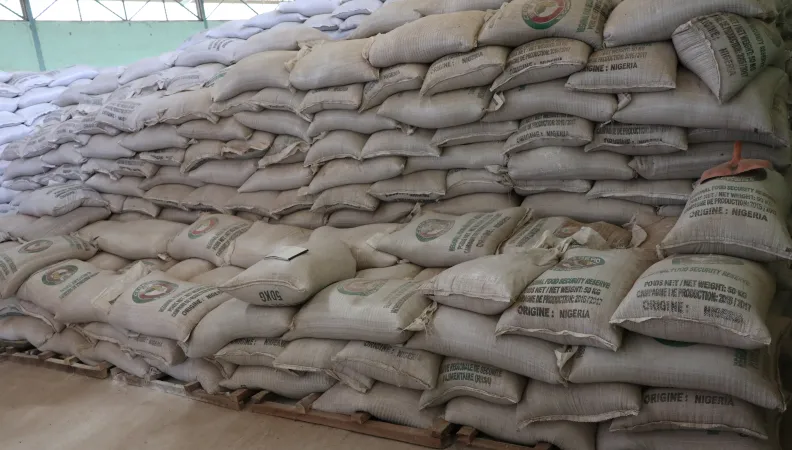Share the page
Build Capacity to Respond to Food Crises
Project
This project is carried out with the support of the European Union



-
Project start date
-
Status
Ongoing
-
Project end date
-
-
Project duration
-
5 years
-
AFD financing amount
-
€ 28600000
-
Country and region
-
Location
-
Abuja, Nigeria
-
Type of financing
-
Beneficiaries
-
ECOWAS
This project is carried out with the support of the European Union

The content of this project information sheet falls under the sole responsibility of the AFD and does not necessarily reflect the opinions of the European Union.
The food crisis that hit West Africa in 2008 highlighted the necessity to strengthen emergency food security reserves at national and local levels, and to create a solidarity mechanism at regional level. AFD supports the implementation of this strategy.
Context
In the event of a food crisis, even if moderate, a large proportion of West African households, given their high vulnerability, have no choice but to sell off their very limited assets.
The 2008 food crisis revealed the limits of the financial reserves accumulated between 1990 and 2008, and ECOWAS member states decided to embark on a new food storage policy.
In 2005, ECOWAS adopted a Regional Agricultural Policy (ECOWAP). Its priorities include the strengthening of national food storage policies and creation of a regional food reserve.
The G20 could not reach a consensus on price regulation at international level. But at the November 2011 Cannes Summit, member states committed to support the establishment of the ECOWAS Regional Food Security Reserve, a regional buffer in case of a major food crisis.
Description
The project to support the Regional Food Security Reserve in West Africa aims at supporting ECOWAS in the implementation of its food security storage strategy, which is based on three lines of action: regional, national and local.
It covers all ECOWAS member States, as well as Chad and Mauritania.
It has five main objectives:
- to support the set up of the Regional Food Security Reserve;
- to strengthen national storage systems in member States and their network;
- to strengthen local storage capacities;
- to extend and refine the ECOAGRIS information system, to monitor the agricultural sector in all ECOWAS countries;
- to build the capacities of the Regional Agency for Agriculture and Food, inaugurated in 2013 as part of the ECOWAP.
Impacts
- Regional food stock of 100,000 tons by 2018, of which 34,100 are funded by AFD;
- Development of national stocks of all ECOWAS countries, Mauritania and Chad;
- 50% raise of local storage capacity.


